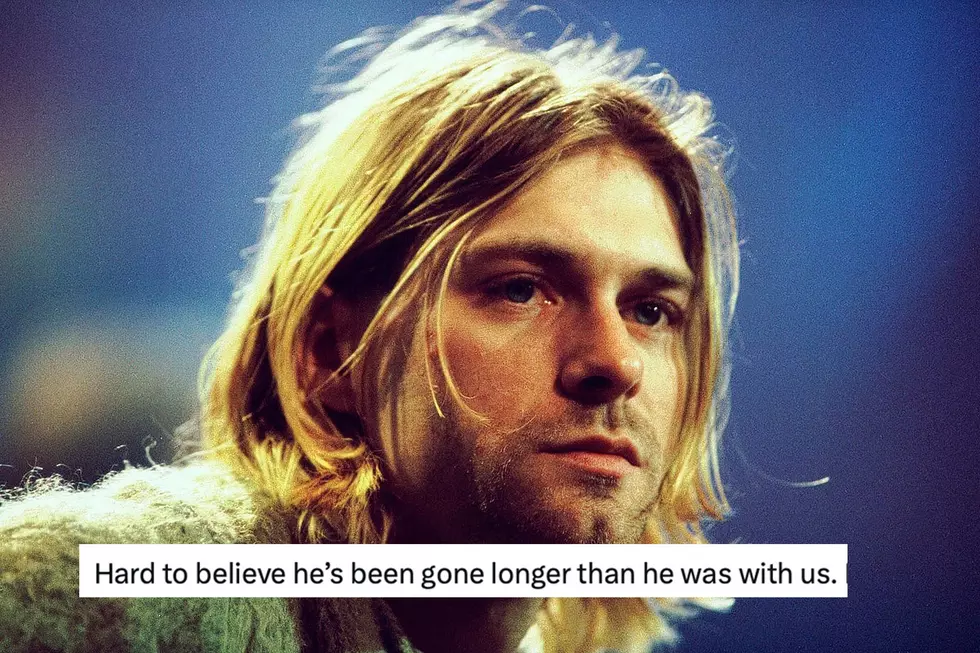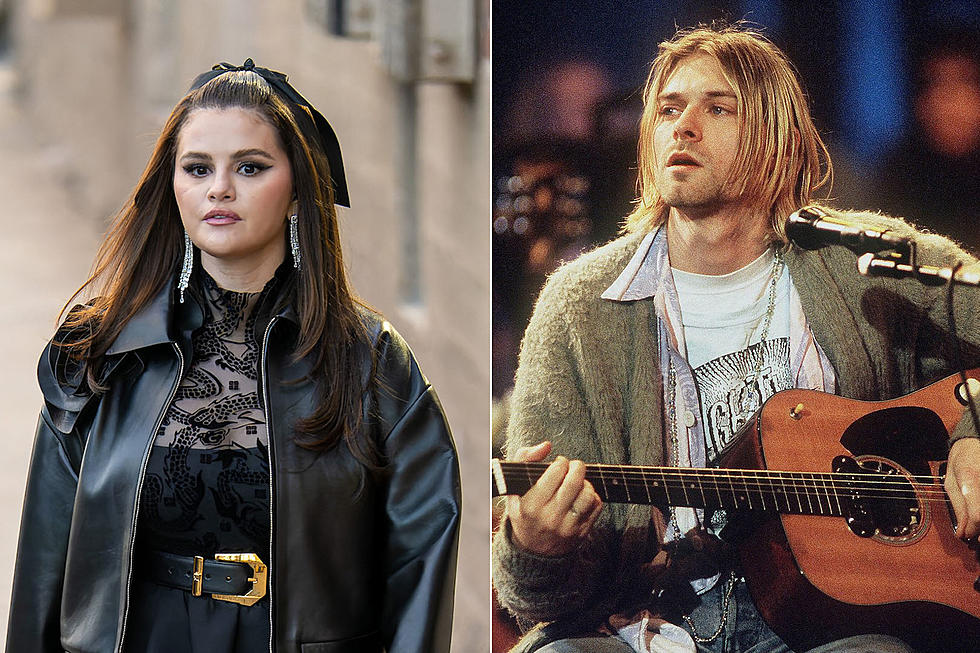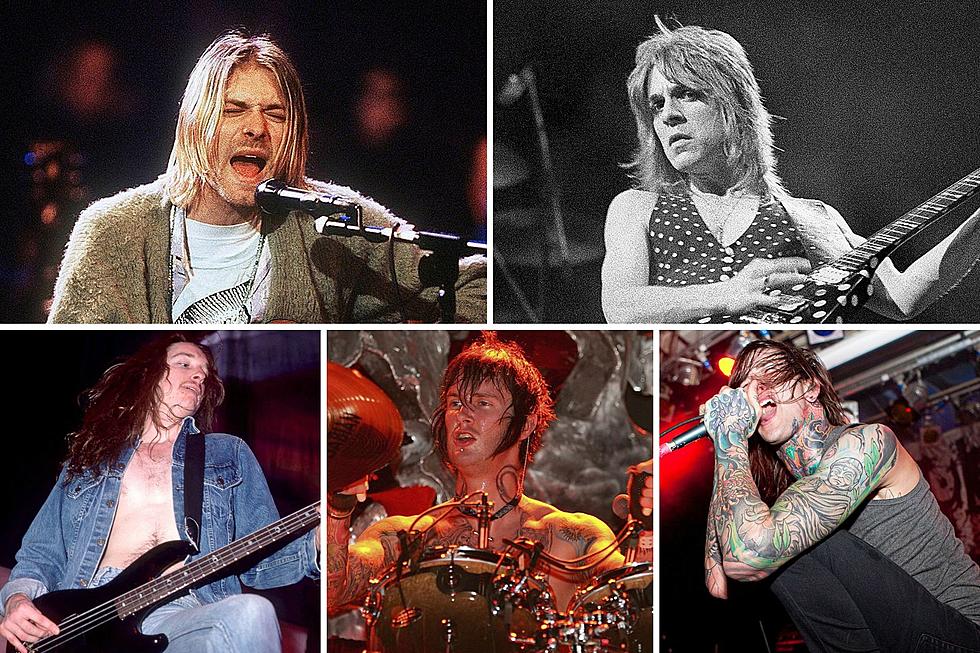Kurt Cobain
Thanks to the wholly unexpected, almost unprecedented overnight success of his band, Nirvana, Kurt Cobain became, not only the reluctant figurehead for the 1990s alternative rock movement, but arguably the biggest rock star of his generation and, finally, its ultimate martyr, when he took his own life. Born Kurt Donald Cobain, in the small town of Aberdeen, Washington, on February 20, 1967, the shy child of a broken home found some answers to his troubles in music, as he shuttled from home to home to occasional homelessness, and struggled to fit in in school before dropping out, two weeks prior to high school graduation. Cobain, who was by now a talented guitarist and immersed in the northwest punk rock scene, eventually moved to Olympia, Washington where he founded Nirvana with old Aberdeen friend Krist Novoselic (bass) and later recruited drummer Chad Channing. This trio began performing regularly and duly signed with Seattle’s emerging Sub Pop Records for the release of debut album, ‘Bleach,’ in 1989 — then “graduated” to major label Geffen before recording their sophomore breakthrough, ‘Nevermind.’ This, of course, catapulted the trio (now featuring Dave Grohl on drums) to universal stardom and more mainstream attention than they had ever dreamed of — or wanted. But Nirvana did what they could to cope, filling the next few years with incessant touring and releases like the odds and sods collection ‘Incesticide’ (1992) and third album ‘In Utero’ (1993), which saw former Germs guitarist Pat Smear brought into the fold. Meanwhile, Cobain had started a combustible, often drug-fueled relationship with Hole singer and guitarist Courtney Love, whom he eventually married (their daughter, Frances Bean Cobain, was born in August of 1992), generating even more unwanted headlines and media attention. By the early months of 1994 Cobain’s life was unravel-ing completely, due to his ever-more-mixed feelings about rock stardom, chronic stomach pains, and several failed attempts at rehab (among other personal demons). And on April 5, the troubled band leader committed suicide in his Seattle home, leaving a void that in some ways marked the symbolic end of the alternative rock movement — though his legacy with Nirvana, obviously lives on.
- Selected Discography: ‘Bleach’ (1989), ‘Nevermind’ (1991), ‘In Utero’ (1993)
- Related Artists: Melvins, Mudhoney, Germs
- Further Reading: 10 Best Nirvana Songs, What Does the Music of Kurt Cobain and Nirvana Mean to You










